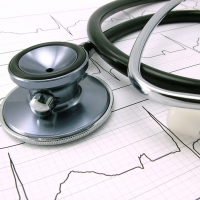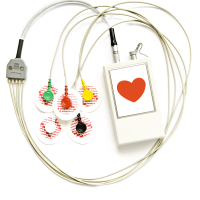There are a number of different tests that patients who have suspected (or confirmed) heart disease may go through. This section will explain the commonly performed tests in brief to give you an idea of what to expect.
Take a look at the tabs below.
Blood Tests

There are some specific blood tests that a patient needs to undergo if heart disease is suspected. Read more here.
Electrocardiogram
Latest Promotions and Bonuses at Fair Go Casino for Australians
Looking to elevate your online casino experience to the next level? Well, look no further than Fair Go Casino, where the latest promotions and bonuses are set to make waves among Australian players. In this article, we dive into the exciting world of Fair Go Casino’s offerings, tailored specifically for the discerning Aussie gambler. Whether you’re a seasoned player or just starting your online casino journey, these promotions are designed to add an extra thrill to your gameplay while potentially boosting your winnings.
From generous welcome bonuses to thrilling ongoing promotions, Fair Go Casino has something for everyone. Join us as we explore the top deals, exclusive offers, and insider tips to maximize your gaming experience at this popular online casino destination. Get ready to discover how you can make the most of your time at Fair Go Casino and take advantage of the latest bonuses designed to keep the excitement levels high and the wins rolling in.
Exciting Welcome Offers for New Players
At Fair Go Casino, Australians can take advantage of exciting promotions and bonuses to enhance their gaming experience. One of the latest offers includes a generous welcome bonus package of up to $1000 on the first five deposits. Players can enjoy a 100% match bonus up to $200 on each of their first five deposits, providing them with extra funds to explore a wide range of casino games.
In addition to the welcome bonus, Fair Go Casino regularly runs special promotions such as free spins on selected pokies, cashback offers, and exclusive bonuses for VIP players. These promotions give Australian players more opportunities to increase their winnings and prolong their playing time at the casino. With a variety of ongoing bonuses and rewards, Fair Go Casino ensures that players have plenty of incentives to keep coming back for more thrilling gaming experiences.
Special Deposit Bonuses and Free Spins
Exciting news for Australian players at Fair Go Casino! The latest promotions and bonuses are now available to enhance your gaming experience. From generous welcome bonuses to free spins on popular slots, Fair Go Casino has something for everyone. Visit their website today to claim your rewards and start playing your favorite games with extra funds. Don’t miss out on these fantastic offers!
For more information and to take advantage of the current promotions, head over to http://fairgo-slots.com/. Explore the wide range of bonuses, including cashback deals, reload bonuses, and special promotions that can boost your winnings. Fair Go Casino is dedicated to providing top-notch entertainment and rewards to its Australian players, so make sure to check out their latest offers and make the most of your online gaming experience.
Loyalty Rewards Program at Fair Go Casino
At Fair Go Casino, Australian players can enjoy a range of exciting promotions and bonuses to enhance their gaming experience. One of the latest offers includes a generous welcome package for new players, featuring a lucrative deposit bonus on the first several deposits. This bonus provides players with extra funds to explore the wide selection of games available at Fair Go Casino, increasing their chances of hitting big wins.
In addition to the welcome package, Fair Go Casino regularly updates its promotions to keep players entertained and rewarded. From free spins on popular pokies to cashback bonuses on specific days, there is always something new and enticing to look forward to at Fair Go Casino. These promotions not only add value to players’ deposits but also create an engaging environment where players can enjoy top-quality casino games with added benefits.
For loyal players, Fair Go Casino offers a rewarding loyalty program that allows them to earn points for every wager made. These loyalty points can be redeemed for bonus cash, free spins, and other exclusive rewards, providing players with ongoing incentives to continue playing at the casino. With a combination of exciting promotions, generous bonuses, and a diverse range of games, Fair Go Casino is a top choice for Australian players looking for a thrilling and rewarding online casino experience.
Exclusive Tournaments and Competitions
At Fair Go Casino, Australian players can enjoy a range of exciting promotions and bonuses that add extra value to their gaming experience. One of the latest offers includes a generous welcome package for new players, featuring a match bonus on the first few deposits. This bonus can significantly boost your initial bankroll and increase your chances of winning big on the wide selection of games available at Fair Go Casino.
In addition to the welcome bonus, Fair Go Casino frequently runs special promotions such as free spins on selected pokies, cashback offers, and reload bonuses. These promotions are designed to reward loyal players and keep the excitement levels high. By taking advantage of these bonuses, Australian players can extend their playtime, explore new games, and potentially win more without risking additional funds.
For players looking for even more rewards, Fair Go Casino also offers a lucrative VIP program that provides exclusive perks and benefits. VIP members can enjoy personalized service, higher betting limits, faster withdrawals, and special bonuses tailored to their preferences. By becoming a VIP player at Fair Go Casino, Australians can elevate their online gaming experience to a whole new level while reaping the rewards of their loyalty.
Seasonal Promotions and Limited-Time Bonuses
At Fair Go Casino, Australian players can enjoy a range of exciting promotions and bonuses that add extra value to their gaming experience. One of the latest offers is the Welcome Bonus package, which rewards new players with a generous bonus on their first several deposits. This allows players to kickstart their gaming journey with a boosted bankroll, giving them more chances to win big on their favorite games.
In addition to the Welcome Bonus, Fair Go Casino regularly runs special promotions and tournaments that offer players the chance to win cash prizes, free spins, and other exciting rewards. These promotions are updated frequently, so players are encouraged to check the promotions page regularly to stay up-to-date on the latest offers. From themed promotions to seasonal bonuses, there is always something new and exciting happening at Fair Go Casino.
For loyal players, Fair Go Casino offers a rewarding loyalty program that allows them to earn points for every wager made. These loyalty points can be redeemed for bonus cash, free spins, and other perks, giving players even more reasons to keep coming back for more. With exclusive offers and personalized rewards, the loyalty program at Fair Go Casino ensures that players are always well taken care of.
Overall, Fair Go Casino provides Australian players with a wealth of promotions and bonuses that enhance their gaming experience and increase their chances of winning big. Whether you’re a new player looking to boost your bankroll or a loyal customer seeking exclusive rewards, Fair Go Casino has something for everyone. With a commitment to providing a fair and exciting gaming environment, Fair Go Casino continues to be a top choice for Australian players looking for quality entertainment and rewarding bonuses.
With an array of enticing promotions and bonuses, Fair Go Casino is undoubtedly a top choice for Australian players looking to elevate their online gaming experience. From generous welcome offers to exciting ongoing promotions, players are treated to a wealth of opportunities to boost their gameplay and increase their chances of winning big. With a commitment to providing a fair and enjoyable gaming environment, Fair Go Casino continues to impress with its dedication to player satisfaction. Don’t miss out on these fantastic promotions — head over to Fair Go Casino today and start reaping the rewards!

This is a test to assess the electrical activity of the heart, and is the most basic test performed. Read more here.
Chest X-ray

This test assesses both the lungs and the heart and is useful if a patient has difficulty breathing. Read about this here.
Treadmill Test

This commonly performed test assesses blood flow to the heart. Learn how it is done right here.
Echocardiography

This test assesses the structure and function of the heart muscle. Read more about it here.
Stress Echo

This specialised test is sometimes performed to assess blood flow to the heart. Read more here.
Coronary Angiogram
A coronary angiogram is a ‘gold standard’ test used to visualise the heart arteries. Learn more here.
CT Coronary Angiogram
This specialised test helps determine the state of the heart arteries. Read more about it here.
Stress Thallium
Ambulatory Blood Pressure

This is a useful test to diagnose or monitor high blood pressure. Learn more here.
Holter Recording

This test records the heart rate over a period of 24 hours. See why and how it is done here.

